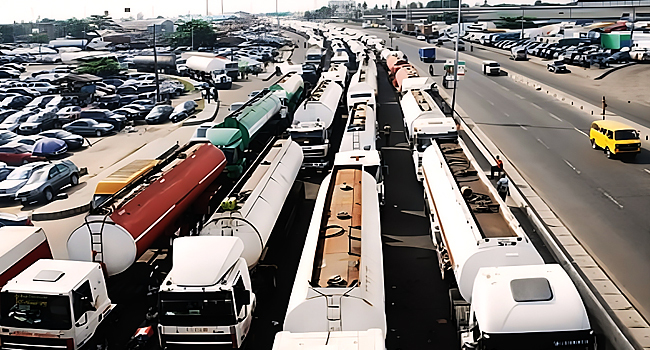Nigeria’s oil marketers have imported a significant 121.1 million litres of Premium Motor Spirit (PMS) over a three-day period, despite a recent reduction in the landing cost of petrol. From December 10 to December 13, 2024, oil marketers brought in 90,308 metric tonnes of fuel, which equates to approximately 121.1 million litres.
This wave of imports comes as the landing cost of petrol decreased by N36, now standing at N900.28 per litre, down from N936.75 per litre just a week ago. This reduction, representing a 3.62 percent drop, reflects favorable shifts in global market dynamics and supply chain factors. Earlier in the week, the landing cost had briefly dipped to N890.43.
Although the landing cost has decreased, the retail price of petrol in Nigeria remains high at N1,060 per litre. This persistent cost discrepancy is largely driven by factors such as crude oil prices and exchange rates, which significantly affect the price of refined petrol in the country.
In the latest data released by the Major Energies Marketers Association of Nigeria (MEMAN), it was noted that the 30-day average price of imported petrol has also decreased to N945.23, down from N946.38 the day before. Additionally, the daily spot price of estimated import parity into tank costs saw a decrease to N900.28 per litre from N890 on Wednesday.
However, domestic refineries have struggled to offer competitive prices. Dealers indicated that petrol from the Dangote Petroleum Refinery is priced at N970 per litre, while the Port Harcourt Refining Company’s refined petrol is priced at N1,030 per litre. This has created a situation where imported petrol, minus regulatory fees, is currently more affordable than locally refined products.
The ongoing importation of petrol highlights Nigeria’s continued reliance on foreign supply despite the government’s efforts to boost domestic refining capacity. Four vessels recently arrived at various Nigerian ports, including Apapa Port in Lagos, Warri Port, Onne Port in Rivers State, and Calabar Port in Cross River State. These vessels collectively delivered the 121.1 million litres of petrol to meet domestic demand.
Among the notable imports was AYM Shafa, which brought in 21.12 million litres aboard the vessel Stellar, which berthed at Warri Port. The Kriti Ruby, which arrived at Apapa Port on December 12, delivered 50.03 million litres, while the St Lady Meenah brought 30.84 million litres to Rivers Port. Another vessel, Virgo 1, is set to deliver an additional 20.12 million litres at Calabar Port on Friday.
While some marketers had previously expressed intentions to cease petrol imports and focus on domestic refining, this new influx of fuel shipments indicates that the country still heavily relies on imported fuel to meet demand.















